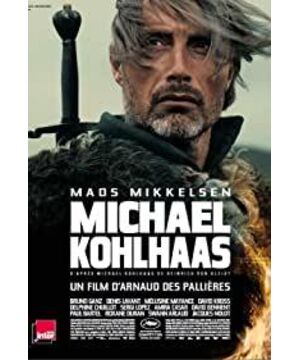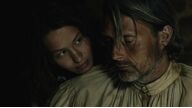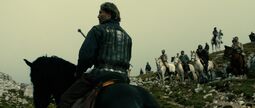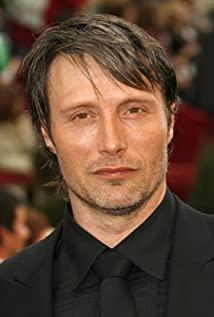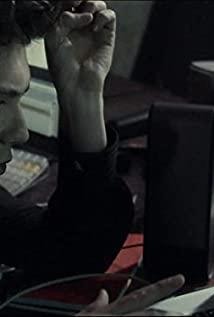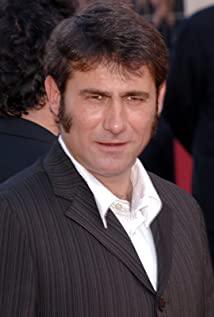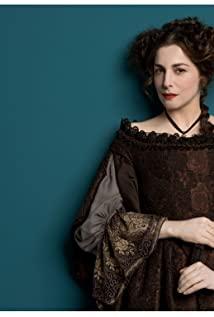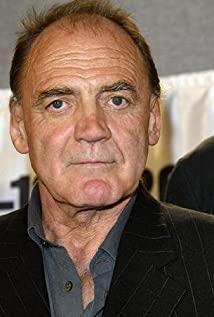"Horse Dealer Kohlhaas", starring Mads Mikkelsen, the best actor in Cannes and Danish star, may be the most intriguing competition film at this festival. The film is adapted from the masterpiece of the same name by the German writer Kleist, which is considered to be an immortal novella in German literature. Based on the true story of a horse dealer, the novel presents an overview of 16th-century European society. Due to the director's unfamiliarity with German society, the film moved the background to France during the adaptation, specifically the Severn region in the southwest of France in the 16th century. Under the deep and majestic background music, the appearance of the movie star Mads Mikkelsen seemed quite heroic. The standard tough guy face on the poster could have completed this revenge tragedy logically, but for some reason, the director did not The grasp of the film's dramatic conflict seems to stop at the choice of the protagonist.
Colhas was a merchant who specialized in the horse trade. He lived a prosperous life, had a happy family, and was a typical middle-class wealthy owner. He lives with his beautiful and petite wife and smart young daughter in their spacious and comfortable estate, and Colhas loves horses like his life. But during a business event, he had a conflict with a so-called "clearance ultimatum" with a knight's castle he passed by, and his horse was impounded by Junker and his men. When he went to the province and finally completed the "customs clearance letter" and returned to the castle, the servants he left to take care of the horses were beaten and driven out of the castle, and the horses were mistreated. He appealed to the provincial court and was suppressed by the nobleman and other members of his family. When he appealed to a higher lord again, his wife died. Unprotected in normal legal activities, Kohlhaas finally chose the path of "self-revenge". After a series of out-of-control events of excessive violence, he became a sensation throughout France. In the meantime, with the help of his friends, he was "pardoned". However, in the conspiracy activities of the noble family, he was finally sent to the guillotine and finished his tragic life. The novel reveals the conflict between the petty bourgeoisie and the feudal rulers at that time through the description of the fate of Kohlhas. Colhas has a contradictory personality, not only has the sense of resistance of the common people, but also is willing to be restrained by the feudal system. The times and society created his hesitant character, which eventually led to his self-destructive tragic life. The original author, Kleist, alluded to the background of the times he lived in in his writing, and the life of the protagonist of the novel, Kohlhaas, is also a true portrayal of the author himself.
It's hard to imagine a revenge story like "Braveheart" of "official forcing the people to rebel" to be turned into a drowsy and dull work by a Palme d'Or shortlisted film. The conflict between persecution and resistance, lynching and public power, jurisprudence and enmity are all strong dramatic elements, not to mention the hatred of killing a wife, but the director Arnold Des Parillas unexpectedly completed a downplayed drama, A bland documentary-style costume drama that reinforces the scenery. The sound and music production of the film is excellent. The cinematography captures the forests and castles of France and the sadness of autumn. Some passages are also reminiscent of this year's re-screening of "The Gate of Heaven". Compared with other movies, "Horse Dealer Kohlhaas" is really lacking in moving.
The overall texture of the movie feels like a European costume movie in the 1960s and 70s with Hollywood-style music and photography. The colors are very simple and slightly dim, and even the lenses that focus on the eyes of the characters are relatively limited. The lighting processing is more biased towards natural lighting, which brings a rare and natural feeling to the tone. The feeling of the characters in the environment is not so much. Epic dramas are more like watching color replays of historical documentaries. From this aesthetic pursuit, the film has indeed made a special feature. Especially in the various costume blockbusters that have been repeatedly sold by Hollywood.
Unfortunately, however, the director's anti-Hollywood narrative, which downplays the dramatic conflict, does nothing but adds to the film's dullness. Consistent rhythm and a large number of medium shots that deliberately keep a distance from the characters make it difficult for us to get close to the characters on the big screen. At the end, under the atmosphere of watching the movie where professionals from all walks of life have been sleepy, "Horse Dealer Kolhaas" really seems to be clueless and scratchy. Anti-audience expectations and anti-typing routines are of course one of the important features of the film festival's winning works, but in this regard, "Horse Dealer Kohlhaas" is a good negative teaching material. Of course, the charm of movies lies in innovation and difference. This desperate risk is always accompanied by huge uncertainty, so we are especially deeply moved by those differences that make the real taste. In this regard, "The Life of Adele" is an example.
View more about Age of Uprising: The Legend of Michael Kohlhaas reviews


